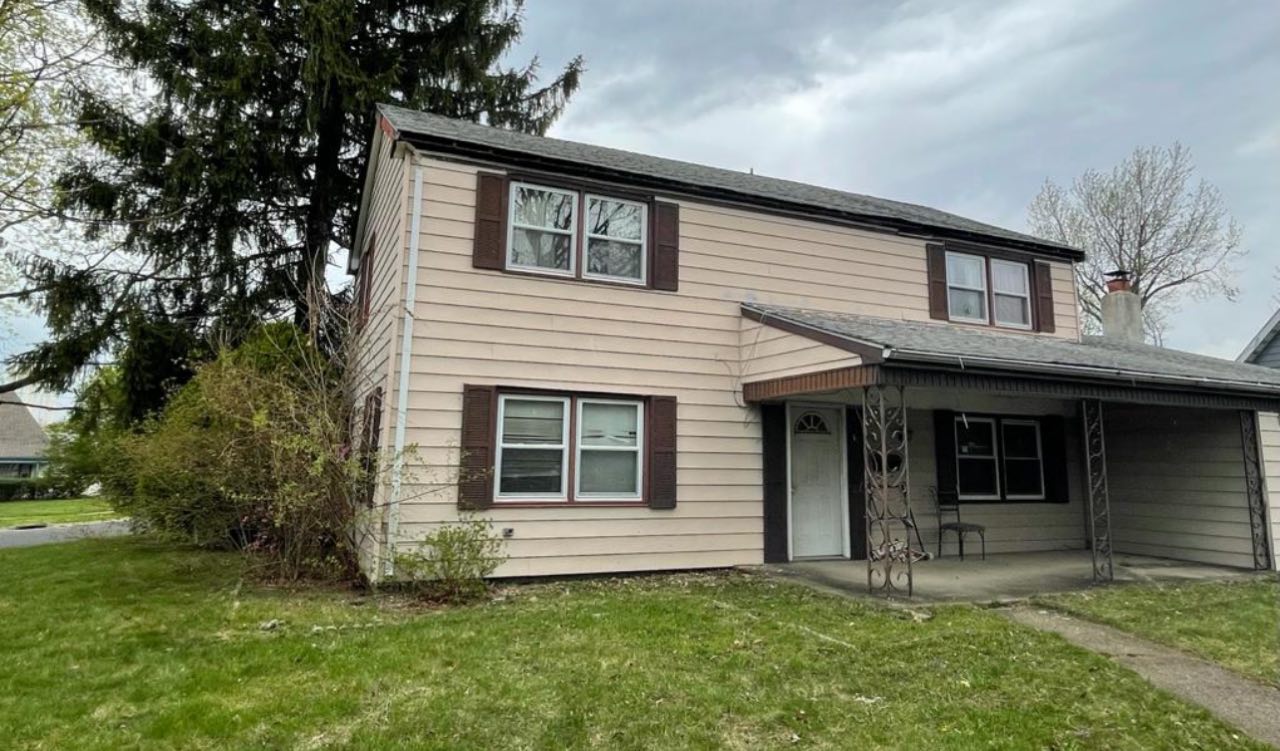
When a landlord decides to sell a house with tenants, it is crucial to understand the rights and obligations of both parties involved. This knowledge is essential to ensure a smooth and fair selling process. Selling a property with tenants can potentially lead to conflicts and concerns. Tenants may worry about their rights being infringed upon or being forced to vacate before their lease ends. Landlords, on the other hand, may have concerns about the impact of the sale on their tenants and the legal obligations they must fulfill.
To avoid any legal issues, landlords must follow specific obligations when selling a property with tenants. These obligations include:
- Providing proper notice to tenants about the intention to sell
- Allowing reasonable access for property showings
- Honoring the terms of the existing lease agreement
Understanding the rights and obligations of both landlords and tenants is crucial for a successful sale. By maintaining open communication and addressing any concerns, landlords can foster a positive relationship with their tenants throughout the selling process.
In this blog post, we will delve deeper into the rights and obligations of landlords and tenants when a house is being sold. We will explore potential conflicts, legal obligations, and provide insights to help navigate this process smoothly. So, let’s jump right in and explore the world of landlord-tenant rights during a property sale.
Tenants’ Rights When a Landlord Sells a Property
When a landlord decides to sell a property, it is important for tenants to understand their rights in this situation. Tenants have certain protections in place to ensure a smooth transition during the sale process. Let’s explore some of these rights and what they mean for tenants.
Notice to Vacate
Tenants have the right to receive notice to vacate the property. This means that the landlord must provide the tenant with sufficient notice before they are required to move out. The length of notice can vary depending on state laws and the terms of the lease agreement. It is important for tenants to understand their rights in this regard and to plan accordingly.
Advance Notice for Property Showings
Tenants have the right to receive advance notice for property showings. When a property is being sold, potential buyers may want to view the property before making a purchase decision. However, tenants have the right to privacy and should be given reasonable notice before any showings take place. This allows tenants to prepare their space and make any necessary arrangements.
Lease Termination Payout
Tenants have the right to receive a lease termination payout. In some cases, the landlord may offer the tenant a financial incentive to terminate their lease early and vacate the property. This payout is meant to compensate the tenant for any inconvenience or expenses associated with moving. It is important for tenants to carefully consider any offers and consult with a legal professional if needed.
Relocation Fee
Tenants have the right to negotiate for a relocation fee. If the sale of the property will require the tenant to move, they may be entitled to a relocation fee to help cover the costs of finding a new home. This fee is typically negotiated between the tenant and the landlord and should be included in any written agreement.
Occupying the House After the Sale
Tenants have the right to occupy the house after the sale. The new owner must honor the terms of the existing lease agreement and cannot force the tenant to vacate immediately. This provides tenants with some stability and allows them to continue living in their home without disruption.
Security Deposit
Tenants have the right to receive their security deposit back. When a property is sold, the security deposit should be transferred to the new owner. The tenant should receive their deposit back at the end of their lease term, provided there are no damages or outstanding rent.
Legal Recourse
Tenants have the right to sue the landlord in a small claims court if their rights have been violated during the sale process. This provides tenants with a legal recourse if they believe they have been treated unfairly or if their rights have been disregarded.
Understanding Tenant Rights When a Landlord Sells a Property
Fixed-term leases can have a significant impact on tenant rights and the obligations of the new owner when a landlord sells a property. In these situations, it is crucial to review the lease agreement to determine if there are any restrictions on selling the property.
Some important considerations for tenants when a landlord sells a property:
-
Fixed-term leases:
Some leases may include a clause that allows the landlord to terminate the lease early if they decide to sell, while others may require the new owner to honor the terms of the lease until its expiration. -
Month-to-month leases:
Tenants with month-to-month lease agreements have more flexibility and can choose to end their tenancy with proper notice. However, when a property is sold, tenants with month-to-month leases are still entitled to receive proper notice to vacate the property. The amount of notice required can vary depending on local laws and the terms of the lease agreement. -
Verbal agreements:
Tenants with verbal agreements face unique challenges when a landlord sells a property. Verbal agreements can be more difficult to enforce and may not provide the same level of protection as written leases. However, tenants with verbal agreements still have rights and should be treated fairly during the sale process. They are entitled to receive proper notice to vacate and should not be forced to leave without sufficient time to find alternative housing. -
Right of first refusal:
One important aspect to consider when a landlord sells a property is the right of first refusal. This right gives tenants the option to purchase the property before it is sold to someone else. However, the right of first refusal is location- and situation-dependent, meaning it may not apply in all cases. It is important for tenants to understand their rights regarding the right of first refusal and consult with legal professionals if they believe their rights have been violated.
Landlord Obligations When Selling a Property with Tenants
When landlords decide to sell a property that is currently occupied by tenants, there are certain obligations they need to fulfill. These obligations ensure that the rights of the tenants are respected and that the selling process goes smoothly. Let’s explore these landlord obligations in more detail.
Provide Proper Notice
First and foremost, landlords should provide proper notice to tenants about their intention to sell the property. This allows tenants to prepare for the potential changes that may occur. It’s important for landlords to communicate openly and honestly with their tenants throughout the selling process. This helps maintain a good landlord-tenant relationship and reduces any unnecessary tensions or misunderstandings.
Allow Reasonable Access for Showings
Another crucial obligation is to allow reasonable access for showings. Landlords should work with their tenants to schedule showings at convenient times, taking into consideration the tenants’ schedules and privacy. Providing advance notice of showings, typically 24 to 48 hours, allows tenants to make any necessary arrangements and prepares them for potential disruptions.
Do Not Evict Solely Because of the Sale
It is important to note that tenants cannot be evicted solely because the property is being sold. Landlords must honor the existing lease agreements and ensure that tenants can continue to occupy the property until the lease term expires. This prohibition of eviction solely based on the sale of the property protects tenants from sudden displacement and provides them with stability.
Maintain Open and Honest Communication
Open and honest communication throughout the selling process is key. Landlords should keep tenants informed about any developments, such as offers received or potential closing dates. This helps tenants feel involved and allows them to plan accordingly. It also builds trust and goodwill between landlords and tenants.
- Provide proper notice to tenants about the intention to sell
- Allow reasonable access for showings
- Honor lease agreements by not evicting tenants solely because the property is being sold
Open and honest communication throughout the selling process is crucial for maintaining a positive landlord-tenant relationship. By fulfilling these obligations, landlords can ensure a smoother selling process and maintain a good relationship with their tenants.
Tips for Landlords and Tenants Throughout the Process
Selling a house with tenants can be a complex process, but it’s essential for both landlords and tenants to understand their rights and responsibilities during this time. In this section, we will provide practical advice for landlords on how to navigate the selling process while respecting tenant rights. We will also offer tips for tenants on understanding their rights and maintaining a good relationship with the landlord during the sale.
For Landlords:
- Review the lease agreement to determine if there are any restrictions on selling the property.
- Adhere to any clauses that require providing notice to tenants before listing the property for sale.
- Provide proper notice to tenants about the intention to sell the property, including information about the selling process, potential showings, and any changes that may occur during the sale.
- Communicate openly and honestly with tenants to establish trust and maintain a good landlord-tenant relationship.
- Allow tenants reasonable access to their homes during showings by providing advance notice and scheduling them at convenient times.
- Respect the privacy and comfort of tenants during the showing process.
For Tenants:
- Understand your rights, as tenants cannot be evicted solely because the property is being sold.
- Ensure that your lease agreement is honored by the new owner.
- Maintain a good relationship with the landlord by being cooperative and understanding.
- Keep your home in good condition and be open to accommodating showings.
In conclusion, selling a house with tenants requires careful consideration of the rights and responsibilities of both landlords and tenants. Landlords should review the lease agreement, provide proper notice, and allow reasonable access for showings. Tenants should understand their rights, maintain a good relationship with the landlord, and cooperate during the selling process. By following these tips, both landlords and tenants can navigate the selling process smoothly and with mutual respect.
Selling a House with Tenants: Rights and Responsibilities
When it comes to selling a house with tenants, it’s crucial for landlords to be well-informed about their rights and responsibilities. In this blog post, we will discuss what landlords need to know when selling a property with tenants.
Review the Lease Agreement
One important step is to review the lease agreement to determine if there are any restrictions on selling the property. It’s essential to understand the terms and conditions outlined in the lease to ensure compliance with the agreement.
Tenant’s Right of First Refusal
Tenants may have the right of first refusal, which means they have the option to purchase the property before it is sold to someone else. This right should be considered and respected during the selling process.
Open and Honest Communication
Throughout the selling process, open and honest communication with tenants is key. Landlords should provide proper notice to tenants about their intention to sell the property and allow reasonable access for showings. It’s important to maintain a good landlord-tenant relationship during this time.
Honoring the Lease Agreement
It’s important to note that tenants cannot be evicted solely because the property is being sold. The lease agreement should still be honored by the new owner, and tenants should not face any disruption in their tenancy due to the sale.
Seek Legal Advice or Consult a Property Management Company
To ensure a smooth transition and compliance with all legal requirements, landlords and tenants should seek legal advice or consult with a property management company. These professionals can provide guidance on navigating the complexities of selling a property with tenants.
Remember, maintaining a good landlord-tenant relationship is essential, and being knowledgeable about rights and responsibilities is the first step towards a successful sale.
If you’re a landlord looking to sell your property with tenants, reach out to us at Savannah Properties NJ. Our team of experts can provide assistance and guidance throughout the process. Visit our website at savannahpropertiesnj.com to learn more about our services and how we can help you sell your property smoothly.







